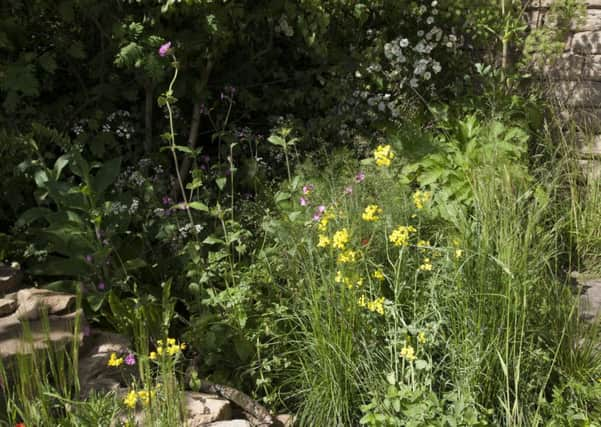Driveways and fake grass are pushing out wildlife


It’s almost summer and birdsong fills the air, along with an intermittent drone of lawnmowers. You may not have noticed but these sounds are becoming less audible and on some streets they are non-existent thanks to three major trends.
Low-maintenance gardens covered in artificial grass, decking or paving slabs are now a common sight thanks to increasingly busy lives that leave no time for weeding, mowing and planting. Increased longevity is also playing a part in destroying the green and pleasant areas around our homes as older people who can no longer manage their gardens choose to lose their lawns and flower beds. Turning front gardens into driveways is also on the rise now that many families have at least two cars.
Advertisement
Hide AdAdvertisement
Hide AdThis fashion for fake grass and hard landscaping is having a devastating effect on wildlife and on localised flooding. Lawns, plants and trees also intercept intense rain, slowing run off and reducing pressure on drains especially during summer storms. Gardens also offer food and shelter for butterflies, bees, birds and hedgehogs, all of which are in decline.
The number of house sparrows has dropped in number by two-thirds since the 1970s and almost half of the UK’s hedgehogs have disappeared in the last 25 years. The RSPB, which has produced a free guide to making gardens wildlife friendly, says: “The wildlife once common in our gardens is under threat and giving nature a home is something each and every one of us can do to help turn the tide.”
Paul Cook, Curator of Harrogate’s RHS Harlow Carr Garden, says the statistics on front gardens in particular paint an alarming picture.
“One in three front gardens across Britain are completely paved over – that’s five million spaces nationwide that leave no room for plants or wildlife and are a missed opportunity to help reduce localised flooding.”
Advertisement
Hide AdAdvertisement
Hide AdThe latest figures for the Yorkshire region show that the percentage of gardens completely paved over increased by 19 per cent over 10 years, from five per cent in 2005 to 24 per cent in 2015. The statistics have prompted the Royal Horticultural Society to launch a “Greening Grey Britain” campaign designed to encourage people to transform hard surfaces into living, planted spaces that can accommodate both cars and plants.
To show how it can be done, the RHS now has a mock house front and garden at its Harlow Carr site. The demonstration front garden is a modest 5.2 x 6.7 metres but is large enough to accommodate a Toyota AYGO,.
Paving has been kept to a minimum, using only 26 per cent of the total area, sufficient to park the car. Gravel has been placed around it to enable rainwater to trickle away slowly and to allow plants to grow or self-seed.
Instead of a fence or wall, a beech hedge forms the boundary of one side of the plot, helping to filter out pollution. On the other side, a brick wall provides a vertical surface for growing climbing plants that take up little room. Almost half the plot is flower beds, with the corners planted up, and there are three trees with slender trunks that take the greenery up and over the car. Pots with seasonal planting have been used where there is no soil.
Advertisement
Hide AdAdvertisement
Hide AdPaul Cook says: “Our new demo garden shows how you can have a beautiful front garden and still park your car off road by making a few simple changes.
“The scientific evidence of the benefits of greener gardens is clear: a mini nature reserve on your doorstep offers both food and shelter for birds, bees and other wildlife; unlike hard surfaces, lawns and borders soak up rainwater and help prevent homes flooding; trees and shrubs trap dust and pollution, helping us to breathe more easily, and there’s growing evidence that coming home to a green oasis can help boost our mental health too. From a very practical point of view, climbers and trees can help to insulate our homes and reduce wind chill, lowering our heating bills in the process, so it’s a no-brainer.”
*RHS Harlow Carr is open every day. Tickets are £11 each. Visit www.rspb.org.uk for advice on creating a wildlife-friendly garden.